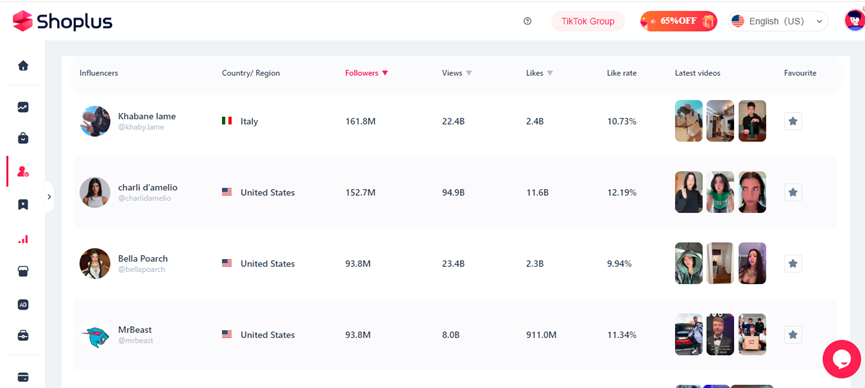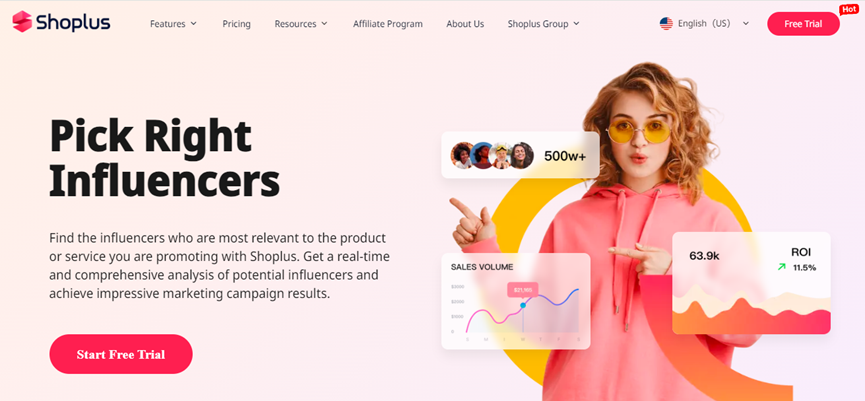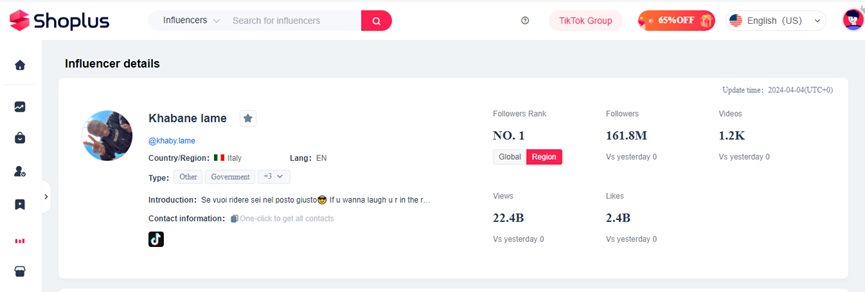Table of Content
In today's digital age, influencer marketing has evolved into a pivotal strategy for brands aiming to effectively reach their target audience. However, to ensure the success of influencer campaigns, leveraging analytics is crucial. In this comprehensive blog, Shoplus delve into the significance of utilizing influencer analytics and how it can significantly enhance your marketing efforts.
Understanding Influencer Analytics
Comprehensive Insights
Influencer Analytics offer invaluable insights into the performance and impact of your influencer marketing campaigns. Beyond the basic metrics like engagement rates and reach, these analytics dive deeper into audience demographics, content preferences, and even sentiment analysis. Understanding these nuances allows brands to craft more tailored campaigns that resonate with their audience on a deeper level, leading to higher engagement and conversion rates.
Trend Identification
Moreover, influencer analytics enable the identification of trends and patterns in influencer content performance. By analyzing which types of content perform best with their audience, brands can refine their strategies for optimal outcomes. For example, if certain topics or formats consistently receive high engagement, brands can tailor their content accordingly to maximize impact.
TikTok Integration
With TikTok emerging as a dominant platform for influencer marketing, it's crucial for brands to leverage TikTok-specific analytics tools. These tools provide insights tailored to the unique characteristics of TikTok, such as video engagement metrics, hashtag performance, and viral trends. By incorporating TikTok analytics into their influencer strategy, brands can stay ahead of the curve and capitalize on the platform's rapid growth.
The Power of Data-Driven Decisions
Strategic Allocation of Resources
By harnessing influencer analytics, brands can make data-driven decisions to optimize their campaign effectiveness and enhance return on investment (ROI). Through in-depth analysis of influencer performance, brands can identify top-performing influencers, optimal posting times, and content strategies. This data-driven approach enables brands to allocate resources efficiently, ensuring that every campaign dollar is spent in the most impactful way possible.
Performance Evaluation
Additionally, influencer analytics facilitate the measurement of campaign impact on various marketing objectives. By tracking key performance indicators such as brand awareness, engagement, and conversions, brands can quantify the results of influencer collaborations and justify their investments. This allows brands to refine strategies for future campaigns, building on successes and learning from areas of improvement.
Conversion Attribution
One aspect often overlooked in influencer marketing is conversion attribution. Advanced analytics tools can track the entire customer journey from initial engagement with influencer content to final conversion, providing insights into which influencers are driving the most conversions and which types of content are most effective at converting audiences into customers.

Leveraging Free Influencer Analytics Tools
Cost-Effective Solutions
Several free influencer analytics platforms offer valuable insights into campaign performance, making influencer marketing accessible even for startups and small businesses with limited budgets. These tools provide a cost-effective way to monitor and measure campaign effectiveness, empowering brands of all sizes to harness the power of influencer marketing.
Shoplus Integration
One exemplary platform is Shoplus, an all-in-one TikTok analytics tracker that offers robust solutions for influencer searches, product discovery, and key metrics analysis. By integrating Shoplus into their influencer marketing strategy, brands can gain actionable insights and optimize their campaigns without significant financial investment.
Social Listening
In addition to performance metrics, some influencer analytics tools offer social listening capabilities, allowing brands to monitor conversations about their products or industry across social media platforms. By analyzing these conversations, brands can identify emerging trends, uncover consumer pain points, and even detect potential PR crises before they escalate.

Crafting an Influencer Analytics Report
Data Visualization
A comprehensive influencer analytics report serves as a valuable tool for evaluating campaign performance and informing future strategies. Visualizing data through graphs and charts enhances the readability and understanding of the report, providing stakeholders with actionable insights to optimize future influencer marketing efforts.
Insightful Recommendations
In addition to performance metrics, influencer analytics reports may include insights into audience sentiment, content preferences, and competitive benchmarking. These insights offer a holistic view of campaign performance and provide valuable recommendations for future campaigns, helping brands to continuously refine their influencer marketing strategies.

Conclusion
Integrating influencer analytics into your marketing strategy is paramount for achieving desired outcomes in influencer campaigns. By leveraging data-driven insights, brands can identify trends, optimize campaign performance, and make informed decisions that drive better results. With the ever-increasing importance of influencer marketing in the digital landscape, leveraging analytics will continue to be a key differentiator for brands looking to succeed in their influencer collaborations.
Sophia
Sophia, a seasoned digital marketer, specializes in analyzing TikTok shop case studies. With 7 years of practical experience, she dissects successful TikTok shop campaigns. Her deep understanding of consumer behavior and market trends offers valuable insights for businesses aiming to excel on the platform.